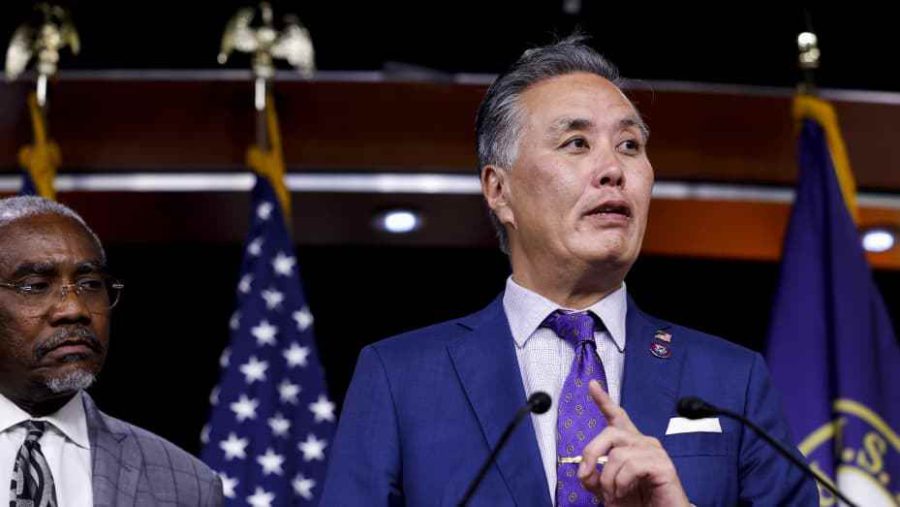The Future of the American Workweek
California representative Mark Takano, who has recently reintroduced the 32 Hour Workweek Bill to Congress.
April 18, 2023
California representative, Mark Takano, has reintroduced the 32 Hour Workweek Act to Congress. If passed, this law will reduce the standard 40 hour workweek to 32.
It is important to note that the 32 hour workweek only applies to non-exempt employees, or someone who is entitled to overtime pay when they work over 40 hours a week. With the new bill, working 40 hours would result in eight hours of paid overtime on top of usual wages.
The average workweek changed for many in 2020 when the COVID-19 pandemic hit. Still, many Americans complete their jobs at home, or only spend half of their hours in person. As a result, companies have found ways to improve morale and productivity. One of those being to reduce the number of hours in a week; therefore completing the same amount of tasks, but in a lesser amount of time. Forcibly removing the excess meetings, phone calls, or other tedious tasks most people dislike about their job.
A six month pilot program was launched in the United Kingdom to test the effectiveness of a shorter workweek on 3,000 workers. CBS announces findings of less stress, less employee burnout, and improved physical health among employees. When asked if they would pursue this structure permanently, over 90% of the companies that partook in the trial recommend implementing a permanent 32 hour workweek.
CNBC reveals a similar study in Ireland where 900 workers across 33 businesses followed the shorter workweek. The outcome was just the same with improved productivity, revenue, and relationships within the workplace. None of the 33 businesses will be returning to a five day workweek, posing the question; what would this look like for companies in the US?
Tricerat, a Baltimore based software company, has already implemented this new way of working and CEO John Byrne shares its positive effects. Byrne informs CBS News that the company’s productivity and profits have risen since the change to the 32 hour workweek. To achieve this Byrne declares, “We’ve asked the employees to ruthlessly look at their work, get rid of extraneous meetings, extraneous phone calls, paperwork, things of this nature, and reduce down the amount of wasted work…” (CBS News). Additionally he notes Tricerat has drawn in new, younger, employees with the change due to work being far more appealing to younger generations without certain irrelevant aspects.
Although it sounds like a promising bill with a positive outlook, talk of putting the 32 hour workweek into law has been in the works since July of 2021. However it was previously opposed due to the struggles that came with enacting it. Emphasizing the challenges seen with how this impacts teachers and students across America. However these challenges might not be as daunting as officials suggest they are.
If more schools were to implement a four day school week for both teachers and students, the occupation would become far more appealing. Dale Herl, the superintendent for Independence School District in Missouri, sheds light on the truth behind the many hours put into being a teacher. Herl voices, “Teaching is hard…and so much time is spent outside of your normal contractual time doing grading, responding to emails, and meeting with parents,” (Insider). Nevertheless this time is not paid, even if it exceeds 40 hours in a week. Shortening work hours for teachers and adding a day off has provided the time to catch up on these excess factors, or to be used as leisure time for already hard working teachers.
Even though it faces many more obstacles ahead, the 32-hour Workweek Act holds great significance in Takano’s mind due to the mass amount of Americans it will positively affect. If the 32 hour workweek bill is as effective as trials suggest, the average American worker will see a reduction in hours worked, and a significant increase in their happiness and health both in and outside of work.






